In this article we’d answer questions which relate to the judges’ or investors’ perspective. For example: What do investors see as a sexy startup, and how to become one?
What should you learn about the investors before you pitch to them? And how to leverage what you’ve just learned to tap investors’ hearts…?
Preface – How to Win Startup Competitions
In the first article of How to Win Startup Competitions, we developed a clear understanding of what startup competitions are. We discussed the submission & screening processes; the Q&A panel, networking session, the prizes & added values, and beyond.
We then emphasized the importance of delivering a clear message as well as strategizing our slides. This included fitting the right amount of content for the time given. That also included being ready for the Q&A session such as by: preparing extra slides, as well as leading the judges to ask you the questions you wish to be asked.
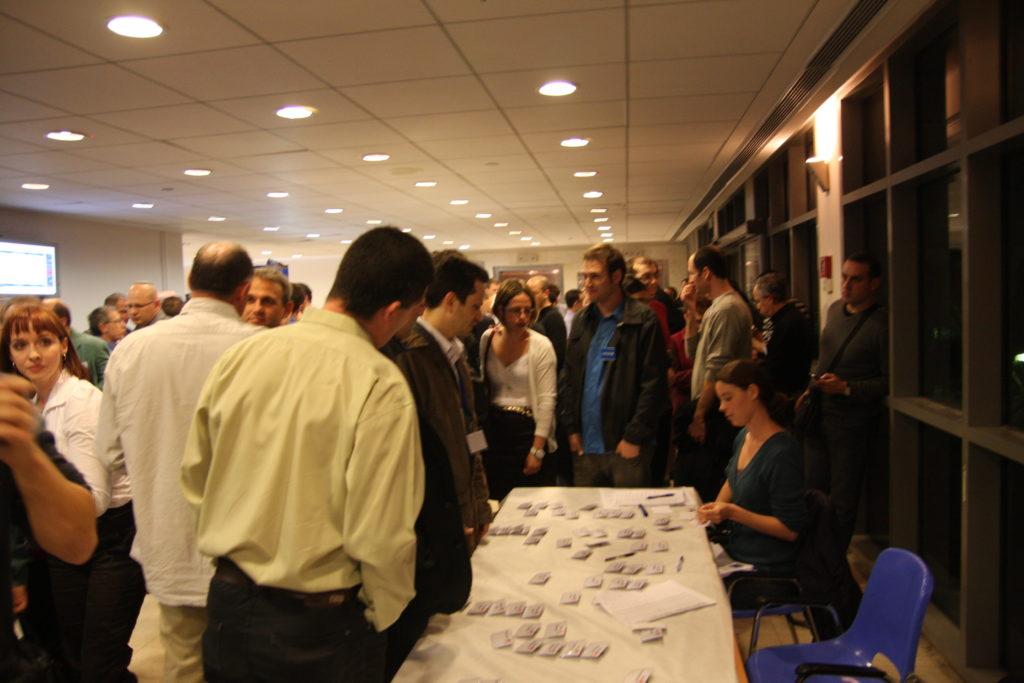
We finished with the understanding of how important it is to properly handle the judges feedback. We emphasized the importance of being appreciative to the judges and their feedback, no matter what! Arguing with the judges feedback is a no no! Rather we shall be attentive and thank them for their feedback. That holds true even if we absolutely totally disagree!
In this article, we take a deep dive into what’s going inside the judges’ hearts and minds. We’d learn to see ourselves, from the eyes of the judges. We’d gain an understanding of how to tap the judges sweet spots. How to become likable. How to make the judges lean toward us. Ultimately it’s all about making the judges wish that you win, more than any other contestants.

So without further due… Let’s Go!
The Risk of Loosing
Maybe it’s a cliche, but you cannot lose. You can either win, or gain experience, right? Well… kind of. There are exceptions though. Like what? Let’s answer that with a (true) story!
Back in 2015 my startup Cyber DriveWare, was competing with 24 other startups, in the Kaspersky’s Security Startup Challenge (aka KOIP).
Unlike with most competitions, Kaspersky’s challenge lasted 3 months, give or take. Throughout the challenge, all startups were continuously monitored and graded by the judges.
The rules were simple: Top startups continue to the next bootcamp. The “worst” ones go home. From 25 startups at first, we ended up being less than 10 startups in the finals.
The finals took place in MIT University, in Boston, MA, with the guest of honor Eugene Kaspersky CEO of Kaspersky. All expenses were covered. Needless to say, we all wanted to be finalists.
One startup which was actually invited to the finals is IronScales, a Israeli startup in the field of anti-phishing.
IronScales were invited despite their scores being off, throughout the competition. They understood that chances they’d win are slim. But what do they have to loose, right?
At the time, IronScales were just about to sign a term-sheet with an Israeli VC named RDSeed. The startup could not take the risk of attending and not winning. That might jeopardize their ongoing due-diligence and investment process!
And so they decided to refuse attendance at the finals.
In perspective I can firmly say that Eyal Benishti, CEO of IronScales made the right decision. Shortly thereafter the deal was closed and he received the funding from RDSeed. To date, by the way, they raised total of over $23M!
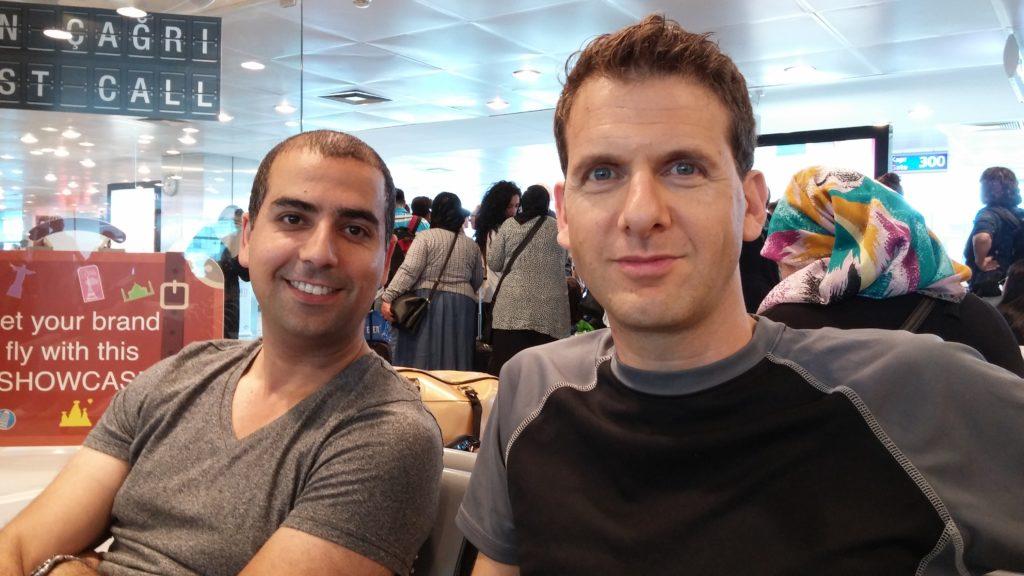
When I come to think of it, IronScales is the only startup from Kaspersky’s Challenge, which is still alive! And they are highly successful too. Good job Eyal! 🙂
The Key Takeaway:
A critical or strategic thinking should be given, to whether or not you should attend startup competitions at a given time… Normally the answer would be a straight yes. But there are exceptions…
The Underlying Message Behind Winning
In the 1st article in the series, we discussed winning prizes and added-values. However, more often then not, the underlining message, if leveraged correctly, is your greatest asset. Let’s further analyze the psychology of winning.
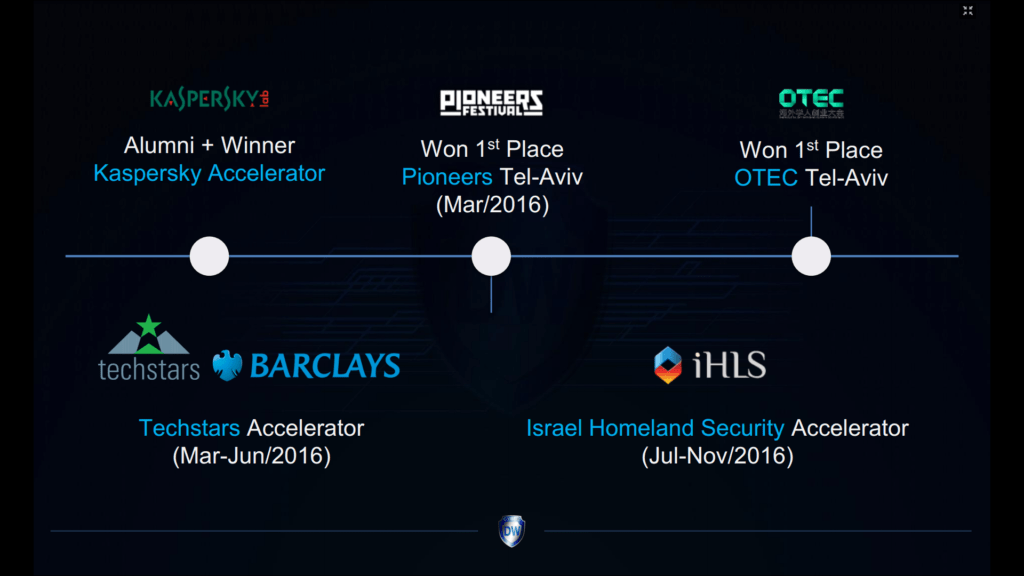
Psychology of Investment: Seemingly Stupid!?
Investing in early stage startups is not an exact science. Every investor would tell you that in the end of the day, they invest from their stomach, rather than solely from their brain.
Investment in an early-stage startup, is somewhat like a marriage. It forms a binding and emotional relationship, in a world of dependencies.
This is not to say that the due-diligence process is not accompanied by figures and numbers. But in the end of the day, the investors choice, is rather emotional. It would be better seeing investments as a psychological-emotional-political decision, rather than a technical analysis.
Investors who invest in startups naturally meet with their colleagues, who also invest in startups. They may drink coffee or beer, just as we all do. Then they share of their stories: Who they invested in, why, what was it like, etc.
The last thing an investors wishes for, is to appear stupid in the eyes of their colleagues. Investors would rather not invest in a startup, than taking the risk and appearing stupid for doing so.
The same applies to selecting winners in a startup competition: a judge would not like to appear stupid by asking the wrong question, or by electing the wrong startup. Thus you have to appear as a legit winner, to be awarded the 1st prize…
Similarly, a startup which wins competitions, is kind of transforming itself legit, from the perspective of being investment-worthy.
Winning startup competitions gives investors “an excuse”. Startups which win competitions have already been recognized by other industry experts as better than many others. Investing in them is clearly not an act of complete nonsense…
The Key Takeaway:
In similar with fundraising, also winning startup competitions is not all about your numbers or technical value proposition. Rather, it has so much psychology and impulse to it.
To win a competition, you have to first appear in the eyes of the judges as a legitimate winner. As the one who deserves to win.
Psychology of Investment – Sense of Traction
Winning startup competitions distinguishes you from the crowd. It sends a signal to the risk-capital community: We are not just one another startup. We stand out! We are on the road to success!
As a rule of thumb, before investors make an investment, they like to monitor their candidates for quite a while. They like to see that startups deliver over time. One thing they look at, is called “traction”. Traction could be seen in the market-validation, in sales, or in successfully obtaining other goals or key milestones.
What else could feel like traction? If leveraged correctly, winning startup competitions can create a sense of traction.
One you win, you could communicate with your VC to create the sense of: “ok guys, you monitored us for quite a while now. Our market validation is consistent. We obtained key milestones such as… We are an alumni of an accelerator program; And now we even won a startup competition.”
Receiving a growing level of recognition from industry experts and fellow investors goes a long way!
Simply put, winning competitions is also a form of traction. It’s a statement: We are investment-worthy and now, more than ever, investors see that”.
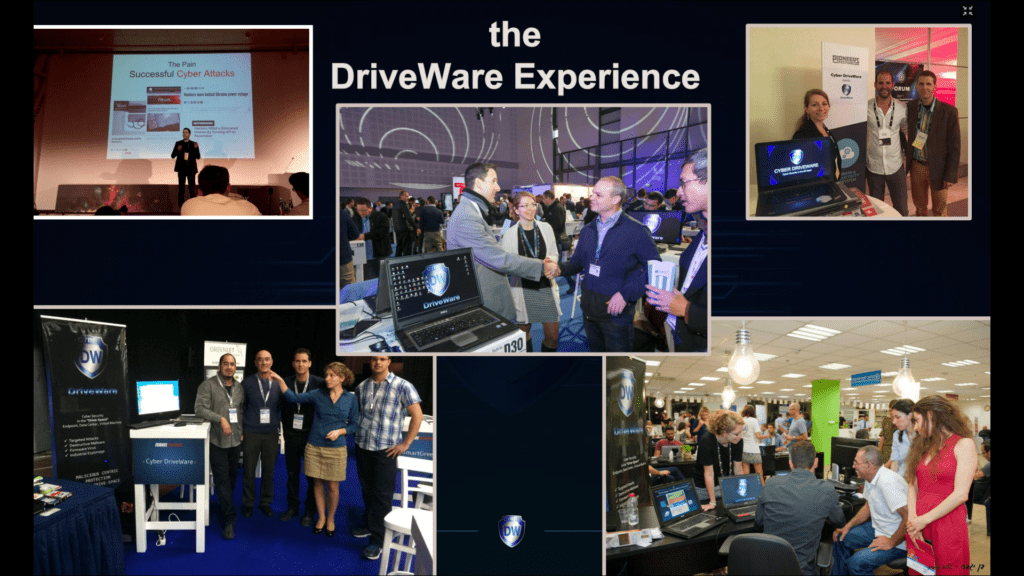
The Key Takeaway:
Winning startup competitions is a form of traction. It can somewhat compensate for lack of other forms of traction. Or it could add to the traction you already demonstrate. Winning can motivate investors to stop sitting on the fence, and take an action.
The Judging Criteria: Field of Operation & TAM
Let’s take for example a startup competition with over 100 contestants. Which startups would make it to the finals?
Naturally only appealing decks would take your startup through the 1st screening process. Such decks would not only look good. They would also deliver the company’s value proposition in an appealing manner.
In the next stage, the screening committee would filter startups based on Total Addressable Market (TAM), number of users, and other quantitative criteria.
One last important factor is how sexy your startup is. Mainly that means: Does your product or technology fall into popular categories or fields of operation?
Key Takeaways:
- Make sure your deck looks awesome. Run it by a graphical designer, or UX expert. Consider adding a bit of animation, a likable cartoon or anything which makes it appealing.
- Make sure your value proposition is clear. Make sure your deck and executive summary deliver a clear and appealing message.
What a Sexy Startup is NOT!
A managing partner in a leading VC told me once: “I would never invest in a startup which offers a solution for prevention of pedophilia or child-sexual-abuse. Even if such a startup shows itself to have a large market, strong technology, great team, and all other startup ingredients. I’d pass even if it’s a life-saving solution, or a must-have…”
“Why not“, I asked? I would not want my name to be associated with this field“, he answered. This is quite a common opinion, or so it seems.
The specific startup he related to, by the way, indeed failed, unfortunately. It was called United Parents Online, founded by Hanan Lavy, later a Microsoft employee working on their accelerator program.
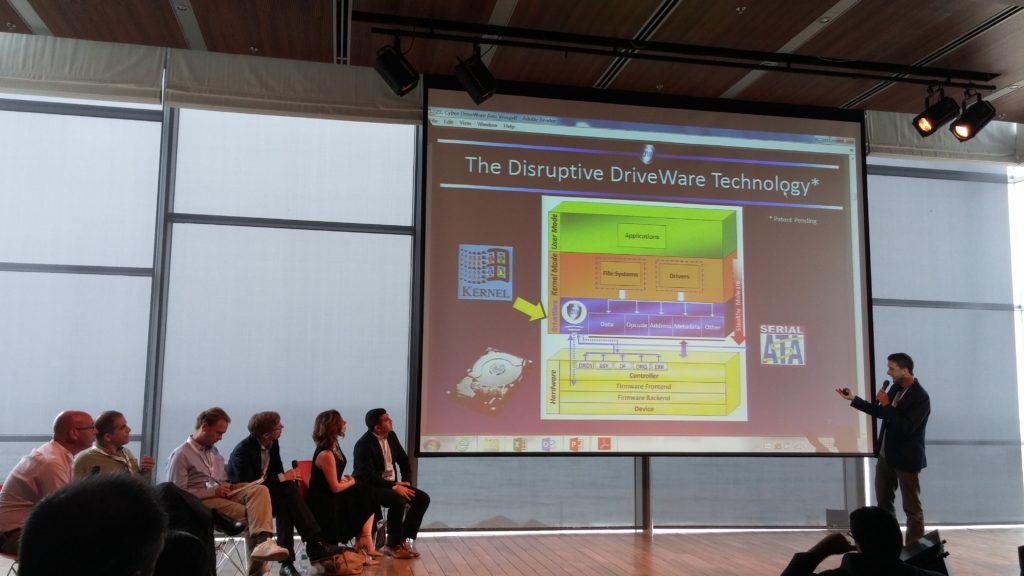
Another investor explained this point to me as follows: “I would never invest in a startup which invents the next-gen toilet paper. Even though there’s a huge market, technology, etc., I would not even consider investing in such a field. It would not look good if I did”.
I actually happen to be a judge in a startup competition by startup live, where such a startup competed: This Australian startup created toilet paper with ads printed on it. The idea was to use such toilet paper in bars, restaurants or other public venues.
I thought it was a great idea, and I liked the implementation and execution just as well. They even gave me a piece of toilet paper as a gift 🙂 Actually, in the featured image of this article, you can see my colleague holding that specific toilet paper roll…
Now that we understand what and where a sexy startup is not, let’s look at what a sexy startup is…
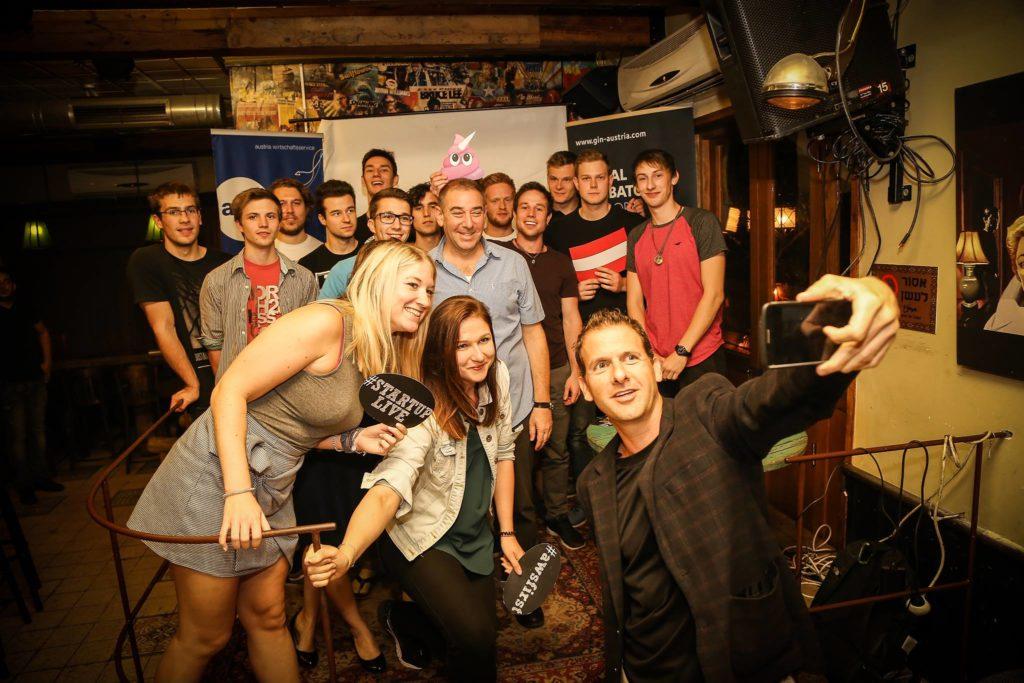
What a Sexy Startup is!?
If you leverage big-data, data-science, deep learning, machine learning and artificial intelligence; you are a SaaS solution; and your offering is in digital-marketing or biotech, that would sure open doors for you. Cyber Security is another trendy field, for quite a few years now.
I.e. being a sexy startup and making it all the way to the holy grail is not just about internal factors such as your market, traction, team and proven execution. Rather, you are subject to trends and external factors which highly influence the risk-capital eco-system and your startup thereof.
The Takeaway
Associate your offering with the hottest trends. First, you need to know what those trends are. Learn about the hottest fields for startups in 2020. Learn which technologies or business models are hot. Then make sure to emphasize on it, whenever applies!
The Pitch
Having an engaging deck and perfectly written materials would only get you so far. To win startup competitions, you must be a fine presenter. Eventually, at one stage or another, it will all be about your presentation skills.
While the deck can sometimes take you all the way to the finals, in the finals it’s all about you. Your posture, intonation, confidence, expertise, etc. Both your delivery and the message you convey, are very important.
In the end of the day, you win for your pitch. This is your moment to shine. You are the choirmaster. Everything else, whether is lighting or slides, is there to accompany you.
If you are not a good presenter (and even if you are), then go ahead and take pitching lessons. Hire specialists such as the legendary Barry Katz, or hire a mentor directly from us (via the Contact Page). We promise you, that improving your presentation skills is an investment, that will reward your throughout your entire life.
Who Should Pitch
The CEO should pitch. If that is not an option, then have the co-founder pitch. I do not recommend that more than one person would pitch. Perhaps, have your partner join in during the Q&A session.
Either way, do not hire a “hired gun”. You may believe that someone else could present your startup better then you. And yes, unfortunately, you might be absolutely right about that.
And yet, it is very unlikely that someone from outside your company would win a competition for you. An investor would not likely invest in a company, without engaging with its CEO.
The Key Takeaway
Invest in yourself. Take private pitching lessons. Master the art of pitching.
Win the Judges – Win Startup Competitions
Earlier in this series of articles, we applied to a startup competition, where we competed against other 99+ startups. Thanks to our exceptional deck and two-pager, we passed the initial screening phase. Luckily enough, we also use a cutting-edge technology and operate in a trendy field. Of course we capitalized on that.
With such a great offering, we are already half way in. Throughout the anticipation, the email has just arrived. We made it! We are in the finals. Yes! That’s already a small win in our bag 🙂
Thankfully, we are also presenters by heart, who took pitching lessons from both Barry and Startups Israel 🙂 Now we are going to stand out and win, right? Hmm… I’m not so sure, pal.
Depending on the specific competition, we may encounter startups which are just as good as we are! Perhaps our deck is more impressive, but they operate in a sexier field. Perhaps we are the greatest presenters, but they have a previous familiarity with some of of the judges.
In high-profile competitions, few great finalists would end up competing head to head. Perhaps they would even be better than us!
So… how do we Win the Judges Hearts?

Make Your Homework: Learn of the Judges
I’ve attended startup competitions where some of the judges really did their homework. They learned my startup in advance. They knew my team, my personal credentials, etc. They really surprised me…
We, the contestants, should certainly do the same – Learn of the judges, in advance! Who are they, who they invested in, what’s their hobbies, etc. Find what’s on their heart!
I once briefly prepared a contestant for competing at the finals event. That startup operated from a city in the south of Israel called Be’er Sheba. They hated Be’er Sheva: It was far from home; it was nearly impossible to recruit employees there; and the climate is nowhere as appealing as in Tel-Aviv.
So why did the CEO operate his startup from within Be’er Sheba? It makes no sense! Well, their lead investor, JVP (a top-notch Israeli VC), required that they work from Be’er Sheba. Why? Mainly due to governmental incentives JVP receives, such as from the chief scientist (innovation authority).
How is this related to our story? Well… The dominant judge in that competition – was from Be’er Sheba. She grew there. She loved her city…
Right before the startup CEO went onstage to present, I asked him: “Doron, how do you like Be’er Sheba?“. He then answered: “You know I hate it“. “Ok“, I said. “From now on, Be’er Sheva is your most beloved city, ever! At least for as long as you are on stage“.
Guess what? During his Q&A session, that judge asked him: “how do you like working from Be’er Sheba?“. I immediately knew it’s a good sing… Doron, which was an exceptional storyteller, shared with her his love to the city.
He won!
I’m not saying he won because he loves Be’er Sheba so much 😉
But for sure, if he told the bare truth to the judge (that they are moving out as soon as they can), he’d not be the winner.
That competition, was part of DLD Tel-Aviv, by the way.
Learn the Judges Protfolio
It is likely that the judges in a startup competition are also investors. Perhaps angel investors, or maybe even managing partners in high-profile VCs.
In a startup competition which I organized and MCed, one of the judges was Bruce Taragin, managing director at Blumberg Capital. All finalsits of the competition, were required to attend a mentoring session by Dona Griffit. Donna is a “Storyteller and Pitch Alchemist“. She does wonders.

Throughout the mentoring sessions, one startup stood out. It presented so poorly. The worst by far. After the mentoring session I remember kindly telling Moti, the CEO: “Listen man, if you wish, you can present in the finals. You earned it. I’m just not sure this would serve your interest so well. Please reconsider. Please make your homework and be rehearsed if you choose to attend”.
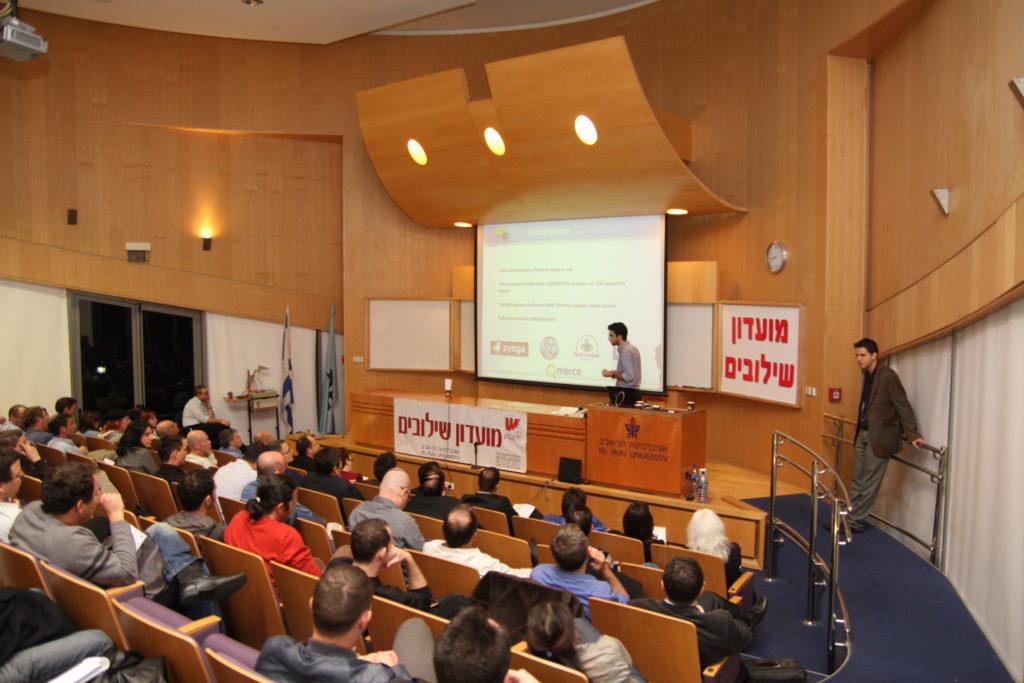
Moti has indeed done his homework. He learned that one of the judges (yes, Bruce Taragin) recently invested in a startup similar to his. Correspondingly, he came prepared.
In the finals, he capitalized on that. He made sure to deliver his unique strengths over that other startup which Bruce invested in. Bruce almost fell off when he heard that that a contest seems much better than his own investment!
Moti Won!
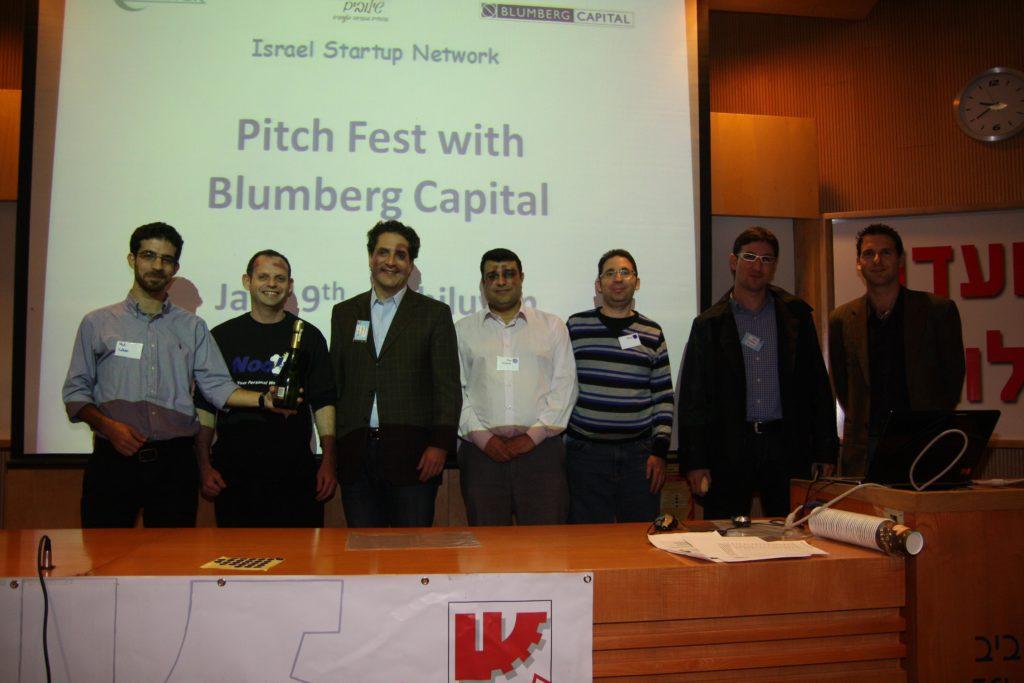
The Key Takeaways:
- Learn who are the judges and learn about the judges, beforehand.
- Learn the judges portfolio.
- Find the judges sweet spots and adapt your pitch accordingly.
Never let a Judge Outsmart You!
So many times I’ve seen CEOs presenting their startups, failing to answer challenging question during the Q&A session.
Often such questions would relate to the startup’s technology. That would usually happen when the presenter is a business-CEO, with limited technical understanding.
Guys, if a judge or a panelist managed to ask you a question which you do not know the answer for – then you failed! It is absolutely unacceptable that someone else would master your field of operation more than you do!
In case there is no good answer to a question, then do not appear hesitant. Rather, rehearse your best answer, and say whatever you have with confidence. Acknowledge this issue as one which you are well aware of (and acting to resolve).
With that said, you must master your field of operation. There is no easy solution here. Presenting to top experts is not easy. There are no shortcuts here…
Whenever you are challenged (during networking sessions, presentations, etc.), memorize the question and later learn your best answer. After presenting 100 or 1,000 times, it won’t be as easy to tackle you in a Q&A panel. I promise you that 🙂
The Key Takeaways:
- Master your field of operation.
- Have your CTO on a stand-by during the Q&A session.
- It’s ok for your startup to be imperfect.
- Be confident, admit and address issues if you are asked about them. Address your workaround when applies. Make the judging panel feel you are on top of things.
In Summary
In the 1st article in the series How to Win Startup Competitions, we already related to the judges perspective when discussing the Q&A session. Here we took a step further, tapping into the judges psychology.
Investing in startups has a lot of psychology, emotions and sometimes even politics to it. The same could be said about awarding the 1st prize to a startup competition contestant… Thus, make sure to appear as a legit winner in the eyes of the judges. Remember winning has more emotions to it, rather than only rational.
Keep in mind that winning startup competitions (in similar with raising money) is subject to both, internal and external factors. While it’s essential that you deliver your message effectively, it’s not all about you.
Rather you shall learn of hot trends and popular technologies. Then associate your startup with those. Appear trendy.
We’ve seen how important it is to learn of the judges beforehand. Always say that you love Be’er Sheba 😉 Always master your competition, especially if a judge has invested in such a competitor.
You must master your field of operation, and there are no shortcuts here. As needed have your CTO on stand-by during the Q&A session.
And last but not least, remember that you should not always compete. Is this the right timing? Or perhaps you have more to lose than to gain, as was the case with Ironscales?
In our next article in the series, Differentiate your Startup using Gimmicks, we’d have less stories. Rather, we’d focus on practical tips. Gimmicks. Ones which would make you memorable. Ones which you could leverage to win, if you are already a finalist…
Feel free to share your thoughts or feedback right here below.
And… Good Luck!



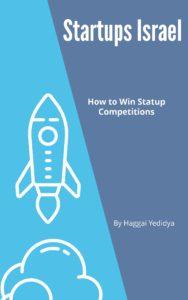
0 Comments